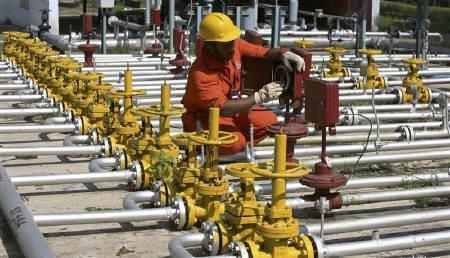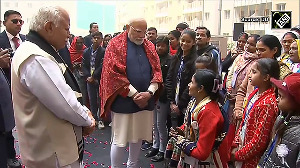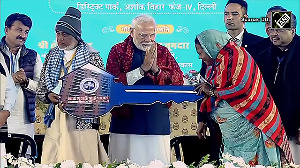 RIL has denied knowingly producing any gas from the ONGC block.
RIL has denied knowingly producing any gas from the ONGC block.There has been much comment over the $1.55 billion demand made by the petroleum ministry on Reliance Industries and its partners, BP and Niko Resources, for alleged unfair enrichment through gas migration from an adjoining Oil and Natural Gas Corporation (ONGC) block in the Krishna-Godavari basin.
The reports of large amounts of gas seeping into RIL’s block for over seven years led to the matter reaching the doors of the high court. It constituted a one-person committee of A P Shah, who'd retired after being chief justice here, to investigate. His report, delivered on August 28, 2016, opened a Pandora’s box of complexities.
It confirmed the movement of gas into the RIL block and made a subsequent determination of unjust benefit to RIL (and its partners) due to extraction and retention of the resource, in contravention to their production sharing contract with the government.
Its other important conclusion was that the migrated gas, as a national resource, belonged to the government and not ONGC. This got the petroleum ministry instantly involved in the quickly developing issue.
The government directed a technical arm to determine the amount of seeped gas extracted by RIL; it arrived at 338.332 million British thermal units. The ministry then calculated a dollar figure on the ‘unjust benefit’ made by RIL, leading to the $1.55-bn notice on November 3, 2016.
RIL denied knowingly producing any gas from the ONGC block. It had, it said, always drilled on its own block, with prior approval of the government.
As the liability demanded by the latter came under the PSC, Reliance invoked an arbitration clause in the agreement for settlement of disputes, and served the government a notice on November 11.
To roil the waters further, the company termed the demand an unprecedented move in any oil and gas sector worldwide and demanded this be settled through international petroleum industry practices, in line with the PSC.
What now?
In what seems to have all the makings of a Vodafone-like tussle, with the tax department trying to secure its demand without regard to arbitral proceedings, currently underway, all eyes are on how the government decides to handle this.
According to Tejas Karia, partner, Shardul Amarchand Mangaldas & Co, this case is a bit different from the Vodafone one, which had involved a statutory liability as in the law of the land.
“In the present scenario, a mere demand has been made by the government, which is yet to be adjudicated in an arbitral forum,” he says.
Nonetheless, with all claims of such a high value, attempts by the government at securing the amount at the earliest are sure to be watched closely by the company and the legal community.
Under the Arbitration and Conciliation Act, there are several routes that may be taken to realise a demand even before conclusion of an arbitral process, if so chosen.
Section 17 of the Act allows a party asserting a claim to approach the arbitral tribunal to secure the amount as demanded or to preserve the subject matter of the dispute, as an interim measure.
However, as the arbitral tribunal in the present dispute is yet to be fully constituted, this provision cannot come to the aid of the government as of yet.
Possibilities
Section 9 of the Act also allows an Indian court to provide similar relief at the interim stage. This provision may be invoked even before the constitution of an arbitral tribunal, right till the enforcement of the eventual award.
“Such reliefs, however (by a court or tribunal, once constituted), must take into consideration factors such as the financial strength of the company, potential for removal of assets, etc. In this case, it will be a tough hurdle for the government to obtain this kind of remedy, considering the strong balance sheet of the company,” says Sitesh Mukherjee, partner, Trilegal.
Still, given the right circumstances, if the government approaches the Indian court under Section 9, interim relief may be granted and this could be transferred to the arbitral tribunal once it is functional.
“But, in case the petition for interim relief is finally disposed by the time the arbitration tribunal is constituted, any relief provided would ordinarily continue throughout the arbitral proceedings, subject to appeal under the Act," notes Karia.
Once the arbitral tribunal is finally functional, though, any Section 9 action seems unlikely. For, the courts in India will not ordinarily entertain a petition for interim relief unless it is felt the tribunal cannot provide the necessary remedy on its own.
The issue has the potential of becoming even more complex, with RIL suing the government for damages if the arbitration eventually turns in their favour. However, the tale unfolds, there seems to be much gas left in the chamber.











 © 2025 Rediff.com -
© 2025 Rediff.com -